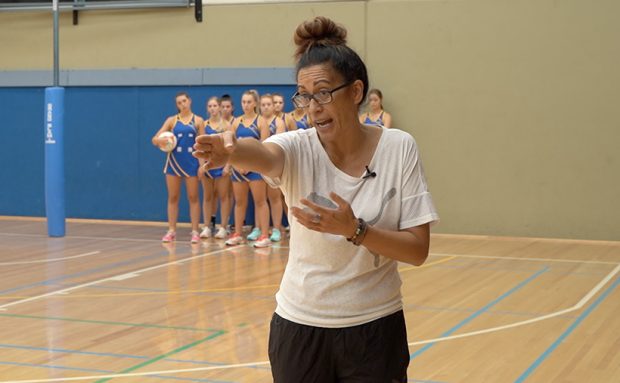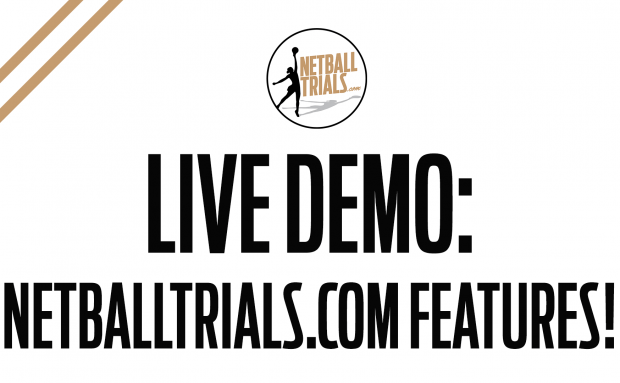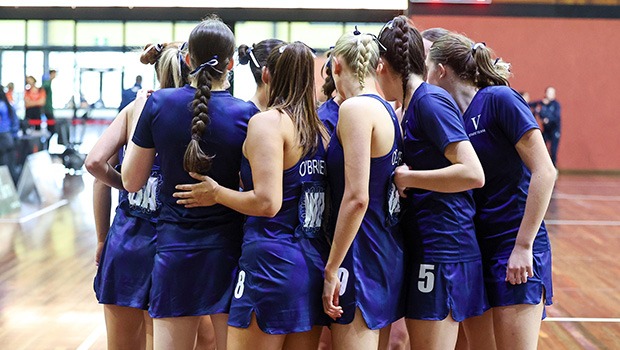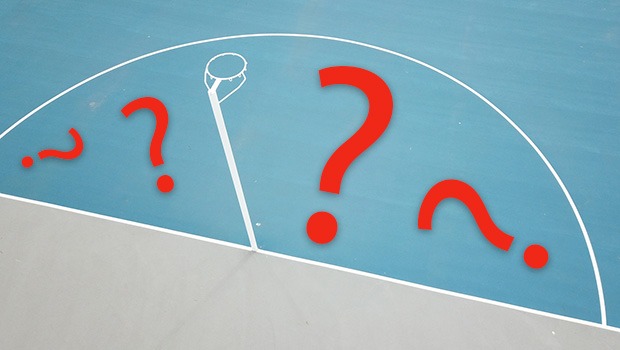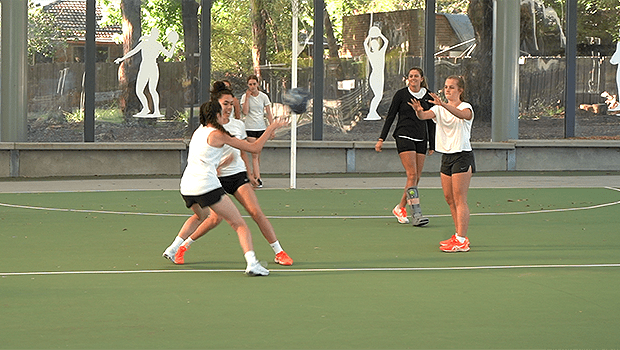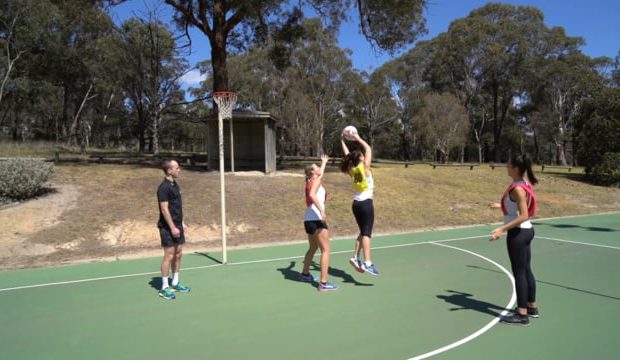Whether you’re demonstrating a drill or discussing with a player how they can improve in order to receive more court time, communication skills and techniques are critical for netball coaches.
And that’s true for all netball coaches, from those with young under-age players right through to the elite level.
Former Adelaide Thunderbirds coach Dan Ryan undoubtedly had some tough conversations in 2017 and 2018 as his team searched for an elusive second Suncorp Super Netball victory, having won its opening game of the 2017 season and then endured 27 consecutive losses.
Ryan hinted early on that he would look to the future and promote young talent within his team, with rising goal shooter Sasha Glasgow, originally a training partner, likely to get the starting nod ahead of players who were initial in the team’s top 10 players.
DRILLS AND SKILLS: SIGN UP FOR ALL OF OUR NETBALL DRILL VIDEOS HERE
For that to happen, other players originally selected in the team’s best 10 players were almost certain to be relegated to the bench, just like when veteran Renae Ingles was quickly brought back into the fold and straight onto court after returning from the birth of twins midway through the season.
And that, of course, meant there would have been some tough conversations between the coach and players in recent weeks.
When Ryan spoke to thenetballcoach.com, he had some advice for coaches as they consider how best to communicate with their players.
COMMUNICATE CONSTANTLY
Ryan says it’s critical that you engage with each of your players as often as you can, so they always know where they’re at and know that you’re thinking about their development.
“I think it’s always a really important one, and I’ve always placed massive emphasis on having really good professional relationships with the athletes you work with, irrespective of what level they play at,” he says.
“I think the communication between the coach and the athlete needs to be continuous and it needs to be often and it needs to be really clear.”
The timing of the communication is also a factor. There’s no point in explaining to a player why they’ve been taken off court if that conversation happens three days or a week after the event. Give constructive feedback on the day, either during or after the game (or both), so that your players aren’t left to stew with questions and disappointment long after the game is over.
Ryan adds that it’s important your players understand that when you’re providing feedback or managing player expectations, it’s because you respect and care about them and want them to become the best player they can be within that team.
“When you have those conversations they always have to come from a place of genuine care for your athlete, and it’s then up to the athlete to take on that information so they can move forward with it.”
MAKE THE TIME
Inevitably, players require a little more TLC when they’re receiving less court time than their teammates, or haven’t been selected.
Ryan says it’s up to the coach to ensure the player has enough feedback to help them process that disappointment and move forward, so he always makes it a priority to speak to those players as soon as possible.
COURT TIME: WHAT’S THE RIGHT APPROACH?
“I think a lot of the times when athletes do get disappointed or they don’t understand why they haven’t been selected, and they become really disgruntled, a lot of that can come down to poor communication,” he says.
“So I always try and make sure that if an athlete isn’t selected or isn’t getting the court time that they want, that they actually have the clarity and the information to understand those decisions so that they can take that information and move forward.
“If the information isn’t coming to them, that’s where it can become quite tense between coach and athlete. Communication in that space is absolutely vital.”
DO IT IN PERSON
With technology now so dominant when it comes to young people and communication (anyone with junior players – and their mobile phones – at a tournament will know what we’re talking about!), firing off a text message to players might seem natural, but is it an easy way out?
Ryan’s advice is to have all your important player-to-coach conversations face-to-face.
“There’s nothing better than having a face-to-face discussion with an athlete. In this day and age you can easily hide behind an email or a text message, but there’s nothing better than having a genuine and authentic conversation with somebody, particularly around a sensitive or a difficult topic,” he says.
“Always make time to have those conversations with your athletes, because they should feel like you’re making an effort to make that engagement to help them improve.”
“At the end of the day you never take an athlete off the court or don’t play them because you don’t want to see them grow. It’s because they’re potentially not meeting areas of growth that they need to.”
Similarly, you should encourage your players to seek you – as their coach – out in person, rather than asking questions via text, email or through social media.
ENGAGE THE PARENTS
Not all under-age players have the maturity to be able to have two-way conversations with their coach.
And even those who do have the maturity might not always be in the frame of mind to effectively process the information during those conversations.
Ryan says it’s often a good idea to involve the parents in those discussions, so that they can also assist the player to make positive progressions, and so that they know that you’re always considering and planning for the player’s development.
“When they’re still under the age of 18, you need to obviously be very mindful of the parents, and I think again that comes down to communication and setting the expectations of what’s required,” he says.
JOIN NOW: CLICK HERE TO ACCESS 400+ NETBALL DRILLS/SKILLS VIDEOS
“It also depends on the level of competition you’re playing at. I’ve had athletes in the past who are playing at an elite state league level but have been under the age of 18, so it’s been critical that we’ve had that engagement with the parents.”
“It comes down to communication, because you need to make it clear to the parents as to where the athlete sits, so the messaging is very clear across the board between coach, athlete and parent.”
“Once the athlete is independent, and potentially 18 years of age and is an adult, it really is between you and the athlete, and you really aren’t accountable to that athlete’s parents, because there comes a time in their athletic career when they need to stand on their own two feet.”
